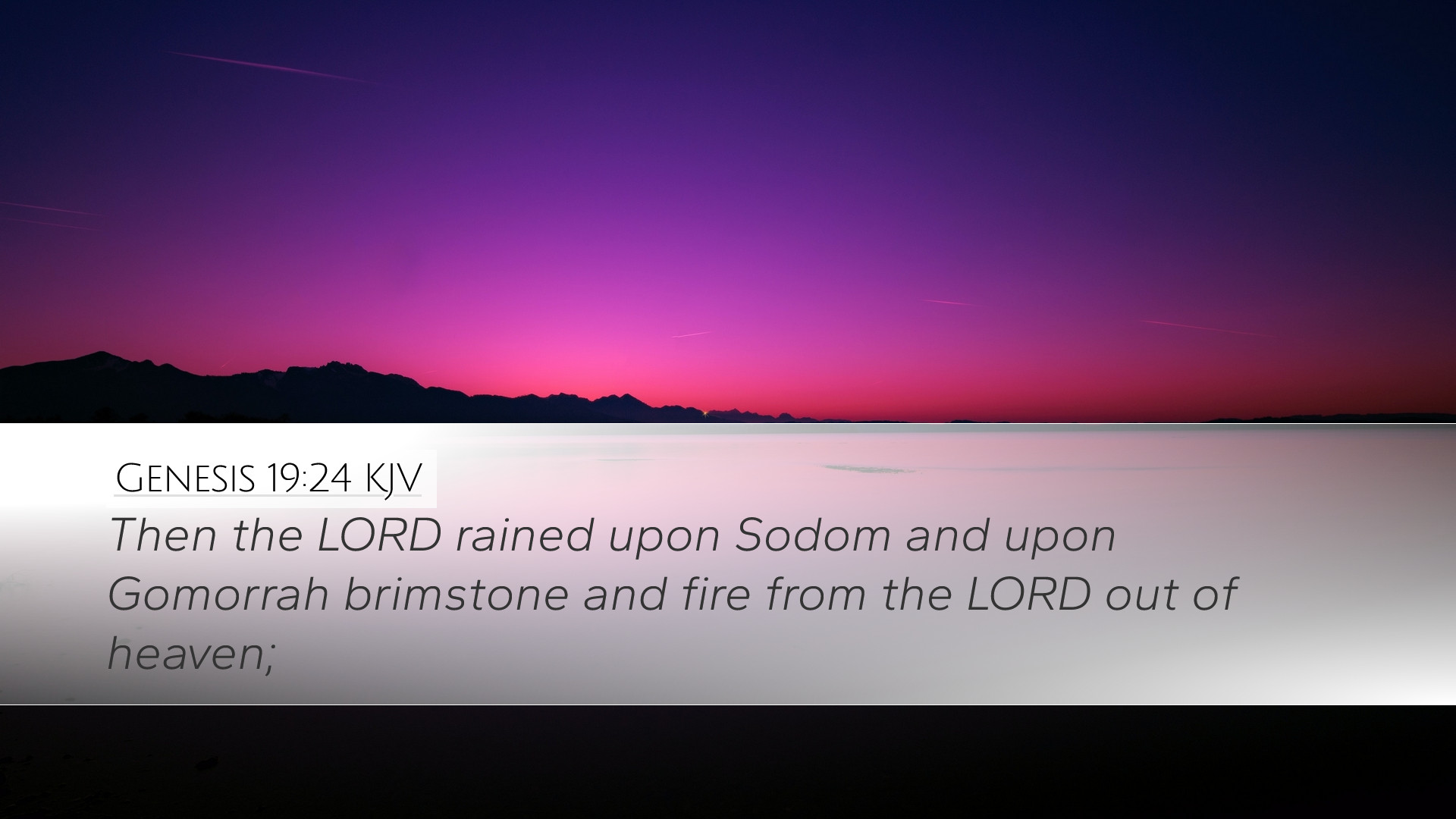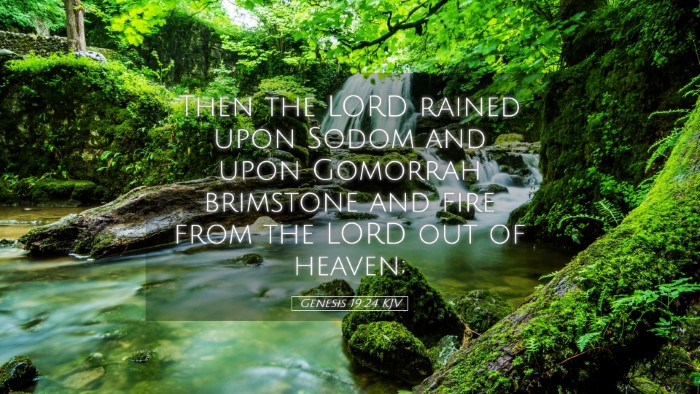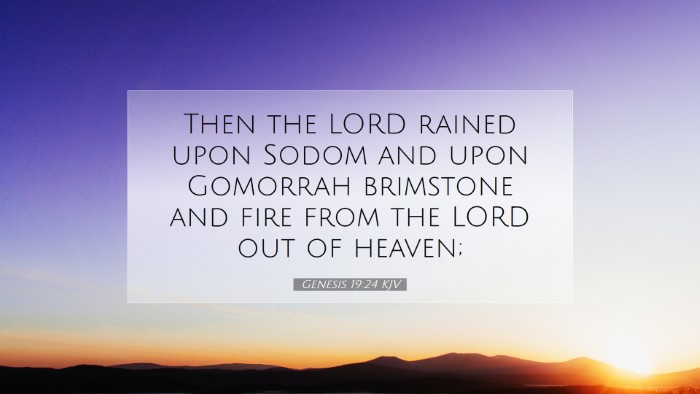Commentary on Genesis 19:24
Genesis 19:24 states, "Then the LORD rained upon Sodom and upon Gomorrah brimstone and fire from the LORD out of heaven." This profound verse captures the divine judgment upon two cities notorious for their wickedness and immorality. Here, we explore insights from several public domain commentaries, examining the theological, historical, and moral implications.
The Context of Divine Judgment
To fully grasp the severity of what is described in this verse, it is essential to understand the context laid out in the surrounding passages.
- Sodom and Gomorrah's Wickedness: The cities exemplified profound sinfulness, including sexual immorality and a general disregard for God's laws (cf. Genesis 18:20). Matthew Henry emphasizes that their sins had reached a boiling point, necessitating divine intervention.
- Abraham's Intercession: Prior to the destruction, Abraham pleads with God for the righteous within the cities. This highlights the nature of God’s justice, balancing mercy with righteousness (Genesis 18:23-32). Albert Barnes points out that this intercession illustrates the profound mercy of God, contrasting the impending doom.
The Divine Response
Verse 24 illustrates God's direct action against the cities. The use of "rained" signifies an overwhelming and uncontrollable force that led to total destruction.
- Brimstone and Fire: Adam Clarke explains that "brimstone" represents sulfur, which was likely prevalent in the area of the Dead Sea. The combination of fire and brimstone serves as a vivid symbol of God's wrath, portraying the catastrophic nature of judgment.
- From the LORD out of heaven: This phrase emphasizes that the judgment is divinely ordained. Matthew Henry notes that this serves to illustrate that divine judgment comes from the highest authority and is executed without the possibility of appeal.
Theological Implications
Genesis 19:24 raises important theological questions about sin, judgment, and divine authority.
- The Nature of God’s Judgment: This event illustrates that God is just and will not allow sin to go unpunished. Henry remarks on God's patience, explaining that judgment often does not come until sin has filled the measure, hence the necessity of this dramatic intervention.
- God's Sovereignty: The act of raining destruction reveals God's sovereign control over creation. Clarke elaborates that God is not merely passive but actively brings about consequences that reflect His holy character.
Moral Lessons
The destruction of Sodom and Gomorrah serves as a compelling moral narrative for contemporary believers.
- Warning Against Sin: The fate of these cities serves as a grave reminder of the consequences of persistent sin. Barnes notes that all nations that forsake God and indulge in vice should heed this warning.
- The Call to Righteousness: In contrast to the wickedness of Sodom and Gomorrah, believers are called to live in holiness and righteousness. Henry emphasizes that this narrative should spur the faithful to pursue a life that honors God and his commandments.
Conclusion
Genesis 19:24 is not just an account of historical destruction but a timeless reminder of God's justice and the seriousness of sin. As scholars and theologians examine this verse, it becomes evident that the themes of judgment, mercy, and divine sovereignty resonate throughout Scripture.
In light of this understanding, pastors and students of the Bible are encouraged to share these lessons with their communities, underscoring the importance of repentance, righteousness, and reliance on God's grace in avoiding the fate of the cities of the plain.


